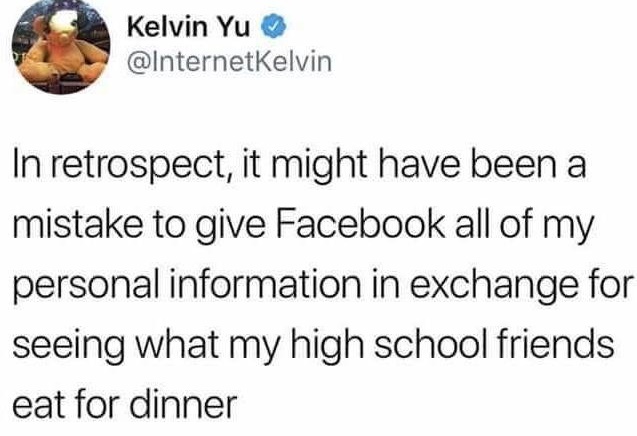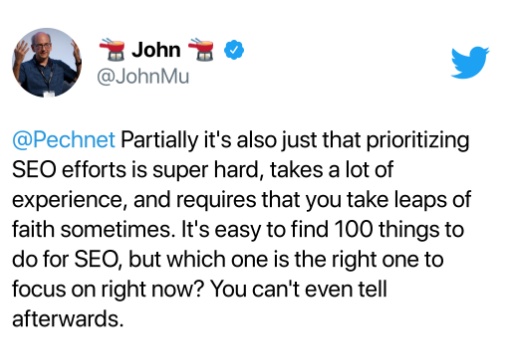1. Good Monday Morning
It’s January 24th. Thursday is the International Holocaust Remembrance Day. You can watch the commemoration event livestreamed beginning at 6 p.m. ET Wednesday.
Today’s Spotlight is 1,790 words — about a 6 1/2 minute read.
2. News To Know Now
Quoted: “The attacks by certain folks on journalists doing their job frighten me.”— Missouri Rep. Peter Merideth to the St. Louis Post-Dispatch after Gov. Mike Parson told reporters that he expected the imminent prosecution of a reporter who filed a story about the state’s education department inadvertently publishing personal data about teachers.
a) The CEOs of Google and Facebook allegedly signed an agreement to collude in Google’s advertising market, according to a lawsuit led by Texas and other states against Google. Texas Attorney General Ken Paxton’s suit also says that top executives at both companies were aware of and participated in negotiating the agreement.
b) Amazon Style is a new retail concept the company is testing this year in LA. The clothing and shoe store will use high end technology, including smartphones and Amazon’s touchless entry system to provide secure fitting rooms where clothes will be delivered.
c) Google’s earliest adopters will soon have to start paying for free services they’ve received for 10-15 years. When Google rolled out its first attempt at a Microsoft Office competitor, the company made the service available free to anyone who owned a domain. That free offer ran until 2012, and Google never charged those companies for the service.
That changes in May when the company says that it will begin charging those free users or suspend their free accounts. It’s a reasonable position since the organizations (and I personally represent nearly a dozen) have received quite a financial break. The most inexpensive of the accounts would run nearly $1,000 for each email address since the offer was first made in 2006. Silver Beacon and our clients alone have more than one hundred accounts that have been free for years so we’re certainly not complaining.
Important distinction: free accounts provided by Google for Nonprofits will remain free. We’ll be happy to help you apply for Google for Nonprofits to receive free email and office suite software, Google Earth & Maps, free Google advertising (yes, really), and more. Just reply to this email. We will help any nonprofit understand and apply for the program.
3. Search Engine News — The Cost of Bad Information
A new analysis at Search Engine Journal reasonably concludes that consistent name, address, and phone information (NAP) for a business is considered by Google as a ranking factor. That’s especially true for organizations that rely on Google Map searches. You might think that’s a no-brainer, but I once went with a team to a Detroit-area conference room where a management group at a then-Big three automaker told us that our data about their locations was better than their own internal data.
Editor Miranda Miller methodically details Google’s comments about this basic information, including previous analyses by hers and other organizations, and real world data. The critical element is the detailed information from Google about this data along with links to review the source material.
Contrast that with a study that a colleague forwarded to me last week that cited a problematic concept called “authority.” This is the notion that websites can influence their rankings by being cited by other authoritative websites. It’s an interesting concept that Google has disclaimed for years in writing, in speeches, and in training documents. In Google’s words, so-called domain authority is not used to influence search engine rankings.
I forwarded my colleague a half dozen links citing Google executives over a span of years. The early comments simply refute the idea, then grow more strident, until this most recent spate of attention when a top Google search evangelist tweeted out that he had given up on trying to convince people.
Like ancient people attempting to explain physical science with a pantheon of deities, the marketplace will attempt to explain a black box like search engines with concepts that seem to fit. The consultants that last for years in this field do something different. They listen to all the theories and then follow the best practices detailed by Google and Bing.
So why does Google make a big deal out of recommending name, address, and phone information? Easy: their plan has long been to organize the world’s information. If they can get business owners to keep information updated, they get to be the authority themselves.
4. Spotlight Explainer — Facebook’s Top Content
NewsWhip published a report last week about the top Facebook content in Q4 that is worth everyone’s attention because of the outsized influence that social media, especially Facebook, has on the world.
We spend a lot of time online and much of it on Facebook
There are 2.9 billion monthly active Facebook accounts. In all, Meta owns four platforms that each have more than 1.3 billion active accounts. Alphabet’s YouTube is in the same park and so are Tencent’s WeChat in Asia and Bytedance’s TikTok. Nothing else is close.
About 57% of the world’s population uses social media. The average is 2.5 hours each day.
The breadth and depth of social media platforms is unlike anything the world has ever known.
Information — right or wrong — flows faster than you can imagine
A financial executive lost control at a smoothie shop in Connecticut mid-Saturday afternoon. He cursed the staff, screamed racial epithets, threw a smoothie at one worker, and tried to get behind the counter. The workers called police and posted video to social media channels. The videos quickly moved from TikTok to YouTube to Facebook and then filtered down to Twitter and Reddit. The man was arrested, fired from his Merrill Lynch position, and lawyered up — all within 24 hours. His name trended throughout social media.
Within 24 hours, the activities were done. He had been arrested, released, and fired, but the outrage was continuing to build. Even smaller social media platforms like Reddit received tens of thousands of engagements on the subject. Breaking stories continue to show about him in traditional media like Newsweek and NBC News, but for those spending that time online, this story ended early Sunday.
Facebook’s top U.S. content during Q4 was predominately conservative media
You might think of your Facebook feed as a slugfest between Fox (in 4th place among publishers) and CNN (6th), but it’s more fringe conservative media that dominates Facebook engagement. Conservative Daily Wire led all publishers, finishing 12% above aggregated NBC. Other surprising entrants in the top 15 included conservative outlets Breitbart, Rumble, and The Blaze. All had much more engagement than traditional media platforms like ABC and The Washington Post.
Politics, Betty White, and legal cases were the big stories
Three of the quarter’s top four most engaged stories were about Betty White’s death. Others touched on tragedies like the tornadoes in Kentucky or legal cases including the Kyle Rittenhouse trial and the case of three Georgia men found guilty of murdering Ahmad Aubrey.
Politics and legal stories like that made up nearly half of all Facebook’s top stories during the quarter. The newest COVID-19 variant, responsible for the deaths of more than 3,000 Americans reported Friday, made up only 8% of the top content.
Don’t forget memes and videos
The Facebook page with the most engagement during Q4 was not a news site, but a meme page called Women Working. In only three months, the page generated 155 million engagements, nearly double the page in second place, the Manchester United soccer team.
5. Did That Really Happen? — Norton Antivirus & Sneaky Software
With social media priming the digital information world, it’s easy for stories to be unintentionally mispresented in real time. That’s apparently what happened when writer Cory Doctrow took to Twitter and accused Norton 360 of installing cryptocurrency mining software on computers and even taking a commission for that.
The truth was more nuanced as The Verge later reported. An inactive mining app was installed by the software, but nothing happened until the computer’s owner accepted an upsell with the software. The idea was horrible, but quickly morphed online into something worse — and untrue.
6. Following Up — REvil Hackers Taken Down By Russia (?)
We’ve written a lot about REvil, a computer crime gang based in Russia that disrupted global meat company JBS and two months later, attacked an IT services company. The gang disappeared shortly after that, then reappeared with bigger threats. Now we’ve learned that Russian authorities have arrested 14 people and seized millions from those attacks.
We would caution that anyone take anything the Russian government says about cybercrime with a big grain of salt, but at the very least, the syndicate is not operating as publicly and flamboyantly as it was.
7. Protip — Apple Closes Discount Loophole
Thrift shoppers who didn’t mind trying to finagle a discount with an inaccurate statement have long claimed Apple computer and software discounts offered to students, teachers, and others in the education community without the company really verifying their claims.
That ended last week according to reporting from How To Geek & PC Magazine. The company now uses a third party verification service and has limited the amount of discounted equipment a person can buy.
8. Screening Room — Remembering Prom
9. Science Fiction World — Self-Driving Tractors
New John Deere tractors use six pairs of cameras and AI navigation to plow or perform other farming duties by themselves. Non-automated tractors can cost up to $800,000, and it’s not clear yet how much these will cost after their reveal at this month’s CES show. It’s still a pretty cool development if a little early.
In addition to doing the normal tractor activities, the new models will analyze soil conditions and farmers can change instructions using a smartphone app.
10. Coffee Break — All Things Wordle
In November — just a few weeks ago — software engineer Josh Wardle’s game averaged 90 daily users. That number increased to two million last week, which is fast even for the internet. There is a new Google Easter egg about Wordle — search for the game’s name, and Google’s logo turns into a graphic of its ubiquitous green and yellow blocks.
Let me start your addiction or feed your cravings with some links:
The Wordle game’s official site
Wordle Explained: Everything You Need To Know — at CNET
How Wordle Became the Internet’s Omicron Pastime — at BuzzFeed
Why You Can’t Resist Wordle — at The New Yorker
11. Sign of The Times





